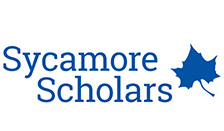Keywords
Clinical Practice in Athletic Training
Abstract
Context: Rapid movement of the brain caused by a concussion can damage brain cells and create chemical changes within the brain, which may cause lasting neurological, cognitive, and behavioral symptoms. It is suggested that following a trauma, biomarkers can be released which may be useful in accurately diagnosing concussions. Potential biomarkers being studied include β-amyloid peptide 42 [Aβ42], S100 calcium-binding protein B [S100B], glial fibrillation acidic protein [GFAB], microtubule-associated protein 2 [MAP2], and 2’,3’-cyclic-nucleotide 3'- phosphodiesterase [CNPase]. This study focuses on evaluating AT knowledge and awareness of biomarkers, with sub-analyses evaluating ATs’ perception of current knowledge of biomarkers, and the acquisition of current knowledge of biomarkers. These themes are derived from a larger study, titled, “Athletic Trainers Familiarity with and Their Attitudes Towards Concussion Biomarkers: A Qualitative Study.” Methods: A phenomenological qualitative research design was used where 1 researcher separately interviewed the participants with the same series of 9 questions. Participants were recruited from the National Athletic Trainer’s Association (NATA) research survey service, snowball sampling, and social media recruitment. Interviews were conducted remotely using Zoom (Zoom Video Communications. Version 5.13 San Jose, CA: Yuan, Eric; 2022) where the speech was converted into text, via Zoom’s Automatic Transcription. There were 11 participants, all are certified ATs from a variety of settings, with 5 females and 6 males. The study process involved data analysis through a consensual qualitative research traditional process broken down into five cycles, which created a codebook. For this study, the codes being used are from Theme 1 and are codes 1A and 1B. Results: Out of the 11 participants, 3 of them indicated no prior knowledge of biomarkers and their use in relation to concussions, due to lack of being exposed to biomarkers and lack of necessity to research them due to their work setting, with 2 university and 1 secondary school settings. Five participants indicated minimal prior knowledge, with 1 occupational, 2 secondary school, and 2 university settings. They acquired their knowledge through research, attending conferences, and by word of mouth. They stated that they did not have a large amount of knowledge due to their work environments, are established with their concussion diagnosis/management practices, and it not in discussion in their respective settings. One participant, at a secondary school, indicated a decent amount of prior knowledge and stated that they acquired their knowledge through their research. Two participants indicated a considerable amount of prior knowledge and stated that they acquired their knowledge at work, 1 military/university/research and 1 research. Conclusion: This study concluded that the majority of the participants have minimal prior knowledge of biomarkers and their use with concussions. The majority did not receive any formal training or education on biomarkers and gained their knowledge through their efforts. Biomarkers are not a current discussion in the majority of work settings of ATs due to a variety of obstacles. Due to lack of knowledge, formal training, and education, it would be difficult to implement biomarkers in relation to concussions in the athletic training field in the near future. With further research on this topic, conducting more studies similar to this one, and providing opportunities for formal education and training to ATs, implementation of biomarkers for concussion diagnosis and treatment in the athletic training field may be possible in the future.
Recommended Citation
Swindell, KGS; McCormick, T; and Allen, JM
(2024)
"A Qualitative Study Evaluating Athletic Trainers’ Self-Perceived Knowledge and Knowledge Acquisition of Concussion Biomarkers,"
Clinical Practice in Athletic Training: Vol. 7:
Iss.
3, Article 1.
Available at:
https://scholars.indianastate.edu/clinat/vol7/iss3/1
Included in
Kinesiotherapy Commons, Medical Biophysics Commons, Musculoskeletal, Neural, and Ocular Physiology Commons, Orthopedics Commons, Other Medicine and Health Sciences Commons, Physical Therapy Commons, Physiological Processes Commons, Physiotherapy Commons, Recreational Therapy Commons, Sports Medicine Commons, Sports Sciences Commons

